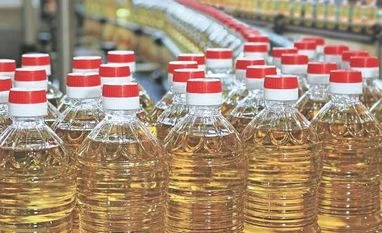In the latest round of flip-flops that could have a far reaching impact on the Indian edible oil markets and prices, Indonesia on Wednesday once again widened the scope of its export ban on raw materials for cooking oil to include crude and refined palm oil, among other products, leaving global and Indian markets in a state of shock.
For India, which is one of the biggest consumers of Indonesian palm oil, the situation is back to square one barely days after it got some reprieve after it was clarified the ban would not include the widely consumer crude palm oil.
India imports around 13-13.5 million tonnes of edible oils, of which around 8-8.5 million tonnes (around 63 per cent) is palm oil.
Of this, 8-8.5 million tonnes of palm oil, almost 45 per cent comes from Indonesia and the remaining from neighboring Malaysia.
After last week’s announcement, trade sources feared that if suddenly, monthly supplies of around 300,000-325,000 tonnes of palm oil stop from May onwards it will cause a sharp escalation in edible oil prices in India which have been already on the boil due to the ongoing Russia- Ukraine crisis.
“Ever since the Russia-Ukraine crisis, India’s sunflower oil supplies have gone down from 200,00-250,000 per month to less than 100,000 tonnes per month causing a sharp spike in prices. On top of this if Indonesia decides to suspend palm oil exports, then it will cause serious trouble for us,” B.V. Mehta, Director General of Solvent Extractors’ Association of India (SEA) had warned.
Mehta wanted the Indian government to immediately activate its diplomatic channels to ward off this catastrophe.
Wednesday’s announcement by the Indonesian Chief Economic Advisor flipped a statement that he made a day earlier, in which he had said the export ban would only cover refined, bleached, and deodorized palm olein.
The change was "in line with the president's decision and after taking into account the feedback and views from the people," News agency Reuters reported quoting Airlangga Hartarto said in a short statement.
Reuters said President Joko Widodo said in a separate statement that people's need for affordable food trumped revenue concerns for now.
"Once domestic needs have been met, of course I will lift the export ban because I know the country needs taxes...foreign exchange, a trade balance surplus, but meeting the people's basic needs is a more important priority," he said.
Palm oil markets have been jittery ahead of the ban and Indonesia deployed navy ships and personnel in an effort to thwart illegal shipments.
The new rules were due to take effect at midnight local time (1700 GMT), and the navy and other agencies had been instructed to step up patrols of Indonesian waters to ensure compliance, said navy spokesperson Julius Widjojono.
Palm oil futures on the Malaysia exchange surged by 9.8 per cent on Wednesday, as some market participants feared exporters in Indonesia, the world's biggest palm oil producer, could not get their products onboard vessels in time before the ban starts.
US soyoil futures jumped more than 4% to a record high after Indonesia extended the ban to include CPO.
"This is crazy. We are paying a price for Indonesia policy flip-flops. Every vegetable oil is going through the roof. Securing supplies of any vegetable oil for May shipments is a challenge," said a New-Delhi based dealer with a global trading firm.
Indonesia's ban on palm oil exports is unlikely to last more than a month due to limited infrastructure to store the surplus oil and because of mounting pressure from buyers to resume shipments, industry officials said.
The ban would remain in place until prices of bulk cooking oil dropped to 14,000 rupiah ($0.9720) per litre, Airlangga said.
In Jakarta, bulk cooking oil prices were offered at around 19,000-20,000 rupiah ($1.32-$1.39) on Wednesday and in other regions prices could be higher, Reynaldi Sarijowan, a senior official at the traditional market traders' association, said.
Unlock 30+ premium stories daily hand-picked by our editors, across devices on browser and app.
Pick your 5 favourite companies, get a daily email with all news updates on them.
Full access to our intuitive epaper - clip, save, share articles from any device; newspaper archives from 2006.
Preferential invites to Business Standard events.
Curated newsletters on markets, personal finance, policy & politics, start-ups, technology, and more.
)